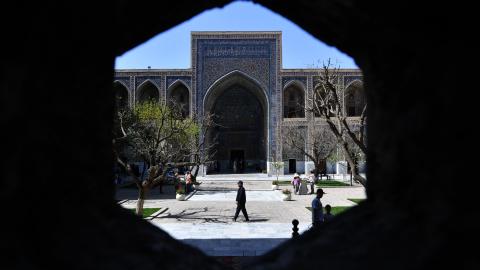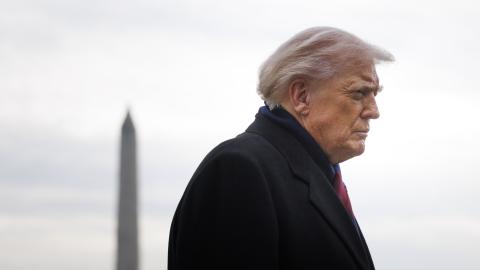The Clinton dynasty will not go gentle into that good night. For the machine to work—for the Foundation to look attractive to donors, for the apparatchiks to have paychecks, for the patronage networks to remain strong—there has to be a Clinton in the political arena. An heir must step up to the plate. And the House of Clinton is already making its first post-election moves. The Hill reports:
The seeds are being planted for Chelsea Clinton to run for Congress representing New York, according to a new report.
Clinton would seek the House seat occupied by Rep. Nina Lowey (D-N.Y.) once the lawmaker decides to retire, The New York Post said Thursday.
“While it is true the Clintons need some time to regroup after Hillary’s crushing loss, they will not give up,” a source said of the family’s intentions, referencing Chelsea Clinton’s mother and her loss in Tuesday night’s presidential election.
There are many cases of dynasties, usually at the state level, in U.S. history. In the early years of the republic, there was the Adams family. The Livingston family has been producing political leaders, though not presidents, for 200 years. Sometimes, like the Tafts of Ohio, state-based dynasties also appear on the national stage, but like the Byrds of Virginia, the Longs of Louisiana, and many others, such family political enterprises have usually stuck close to a local power base. The first modern family to try the dynastic approach on a national level was the FDR family. Eleanor maintained a major presence in the Democratic party for years. FDR’s sons lacked the political talent to make it work.
The Kennedys were the second of the great national dynasties, and while they have not (yet) managed to produce candidates who could achieve the national profiles of the three Founding Brothers (Jack, Bobby, and Ted), it isn’t for want of trying.Today the dynastic approach to politics seems to be having more success. The Bushes and the Clintons have between them dominated U.S. presidential politics since the 1980s. Though both families had a disappointing 2016, neither seems ready to throw in the towel.
There are a number of reasons dynastic politics seems to be becoming more attractive. One is the increasing value of celebrity and name recognition in a media-saturated mass democracy. Dynasties are brands: You know what any given McDonalds will serve you, and you know more or less what kind of policies you are going to get from a Bush or a Clinton. And then there’s money; Daddy’s rolodex can be a useful possession, and the young dynasts are exposed to donors from a very young age. Should Chelsea cold-call a Clinton contributor, the chances are they will already have a history thanks to a pre-existing relationship with her parents.
The weakness of political parties is also partly responsible for the rise of dynastic machines. As the institutions of U.S. politics decay, and as the ethnic and regional political machines of past decades gradually fade, political organizations based around a powerful family and its cadre of retainers can help fill the void.
The question for dynasties is the same one that all political organizations face sooner or later: Where is the money? Political machines need money to keep retainers and henchpersons on the payroll. For political parties, patronage and government payroll jobs provided places for loyalists. This is still how traditional big-city political machines work. But the Clintons have developed a new model: A post-modern political machine, in which the Clinton Foundation provides the consultancies and staff positions that keep family loyalists engaged between bouts of power.
So Chelsea is now getting ready to launch a political career. She won’t just have the formidable talents and world-famous examples of her parents to help her; many of the family loyalists and hangers-on who have been staffing Team Clinton since the early 1990s will also want—even need—for her to succeed.
The founders (with, one presumes, the partial exception of the Adamses) were horrified by the prospect of dynastic politics. Historically, the rise of powerful families in republics has been associated with growing corruption and the decay of republican institutions. The petty tyrants who crushed the liberties of the Italian city-states, the demagogues who wrecked the Roman Republic, the Caesars: The American founders feared that our liberties would one day be destroyed by powerful and aristocratic men of ambition who would whip the poor into a frenzy of resentment against the elites, and then establish a dictatorship on the basis of economic and political populism.
The fact that Donald Trump was able to upend both the Bush and the Clinton machines in 2016 suggests that the powerful anti-dynastic tide that has marked U.S. politics at least since we booted out George III is still with us. Chelsea Clinton, along with any young Bushes and Kennedys who have political ambitions, is going to have to face the skepticism of a generation that dislikes privilege and elites. Yet the House of Trump itself may harbor dynastic ambitions, and it too will face a high bar of public distrust.


















